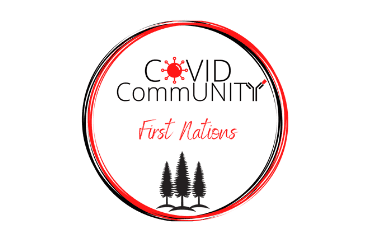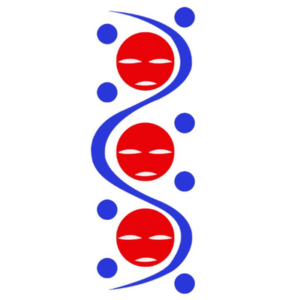Related Studies
The CAHHM First Nations (CAHHM-FN) study collaboration has led to innovative spin-off projects that are highlighted below. This forms a platform from which new ideas and studies can be launched. The CAHHM-FN meets each month via Zoom, and this form of “staying together” as a team strengthens our long-term partnerships.
About the study
Three of the eight communities participating in the CAHHM study have committed to join the COVID CommUNITY: First Nations study, with the remaining 5 unable to participate because of the significant workload to manage the COVID-19 pandemic. Aggregate results and knowledge translation tools developed through this study will be shared with all Alliance communities.
Study objectives
Among men and women living in selected First Nations communities, we will determine:
01.
The humoral immunogenicity in response to the COVID-19 infection and vaccine over time?
02.
The effectiveness and safety of COVID-19 vaccines over time?
03.
The access to, level of trust, and acceptance of COVID-19 vaccines?
04.
The contextual factors, i.e. socioeconomic status, Indigenous determinants of health, household density, occupation type, knowledge or uncertainties about the vaccines, and chronic disease co-morbidities (i.e. hypertension, diabetes, cardiovascular disease), that affect COVID-19 immunogenicity and risk of COVID-19 infection?
Interested in learning more about the COVID CommUNITY study?
About the study
Haudenosaunee Peoples of eastern North America have a strong agricultural tradition and culture associated with maize horticulture. Traditional foodways and diet were disrupted after the people were dispossessed from traditional lands maintained prior to colonization. As a result, Haudenosaunee have been disconnected from their traditional diet and lifestyle, and chronic diseases such as diabetes and obesity are increasing.Haudenosaunee community members living on the Six Nations of the Grand River territory underwent a 90-day challenge, in which they adhered to a diet of traditional foods found in Haudenosaunee territories pre-European contact. The impetus for this study was that participants in the challenge saw such remarkable that they called for a formal scientific investigation. In a pilot pre–post intervention study of 22 participants in 2016/17, we investigated the effects of the 3-month dietary intervention on physical measurements, ectopic fat (including visceral and liver adipose tissue), serum lipids, and hemoglobin A1c among Haudenosaunee participants. We provided biweekly Haudenosaunee food boxes, and offered workshops, cooking classes, and individual support from a dietitian. The intervention reduced body weight, body circumferences including waist circumference, hemoglobin A1c, and MRI-detected hepatic fat fraction. There were no adverse events. Engagement in the program was high and trends favoured improved well-being. The intervention shows great potential as a mechanism for improving physical health and restoring cultural connectedness and identity. The implications for improving mental health and community cohesion are also important areas to consider in future research.
Interested in learning more about the study?
Mission
Genomics (the study of the complete set of human genes) has advanced health care by allowing medical treatments to be tailored to the specific needs of individual patients (‘precision medicine’). Compared to what is becoming routinely available to other Canadians, Indigenous populations often have little or no access to genomic technologies and the research that drives them. This has created a ‘genomic divide’, a key component of which is the lack of background genetic variation data for Indigenous populations. This prevents accurate diagnosis, because reference data are needed when multi-gene and exome (entire genome) testing panels are used. Notably, these genomics resources are silent with respect to First Nations (FN), Inuit and Métis peoples (collectively our Canadian Indigenous populations).
Silent Genomes will address the genomic divide by reducing access barriers to diagnosis of genetic disease in Indigenous children. With our First Nations, Inuit and Métis partners we will:
Establish processes, through an Indigenous lens, for safe governance of biological samples and genome data in the Silent Genomes project, which will lead to broader policy.
Address barriers to accessing genetic/genomic health care and bring genomic testing to at least 200 Indigenous children with suspected genetic disorders.
Develop an Indigenous Background Variant Library (IBVL) of genetic variation from a diverse group of 1500 FN Canadians and assess improvement in diagnosis for referred children.
Assess effectiveness of the IBVL to lower health care costs and plan for long term use of IBVL for Canadian Indigenous children and adults needing genetic/genomic health care.
Interested in learning more about the Silent Genomes study?



